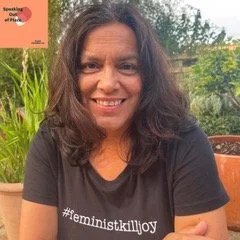Democracy & Economic Inequality w/ Philosopher ARASH ABIZADEH - Highlights
/Professor of Political Science · McGill University
Author of Hobbes and the Two Faces of Ethics · Assoc. Editor · Free & Equal
There is a tremendous tension between healthy democracy and deep economic inequalities. I don't think that, in the long run, democracies can survive in a healthy way unless we address the problem of economic inequalities. If we have individuals who are living day to day, on the one hand, and we have other individuals who are billionaires in our societies, on the other hand, it will be very difficult for us to have a genuine democracy.



















